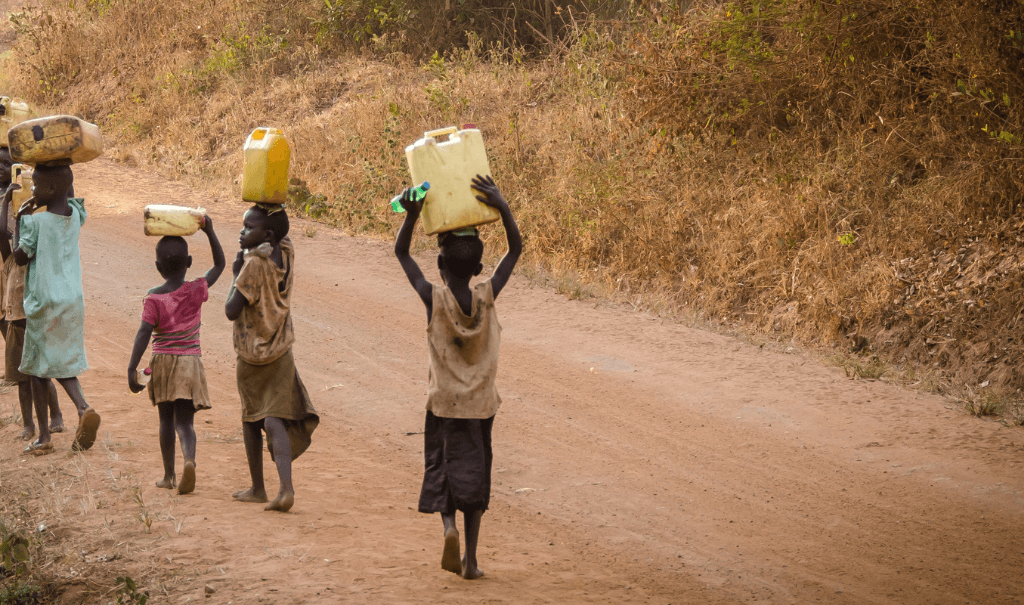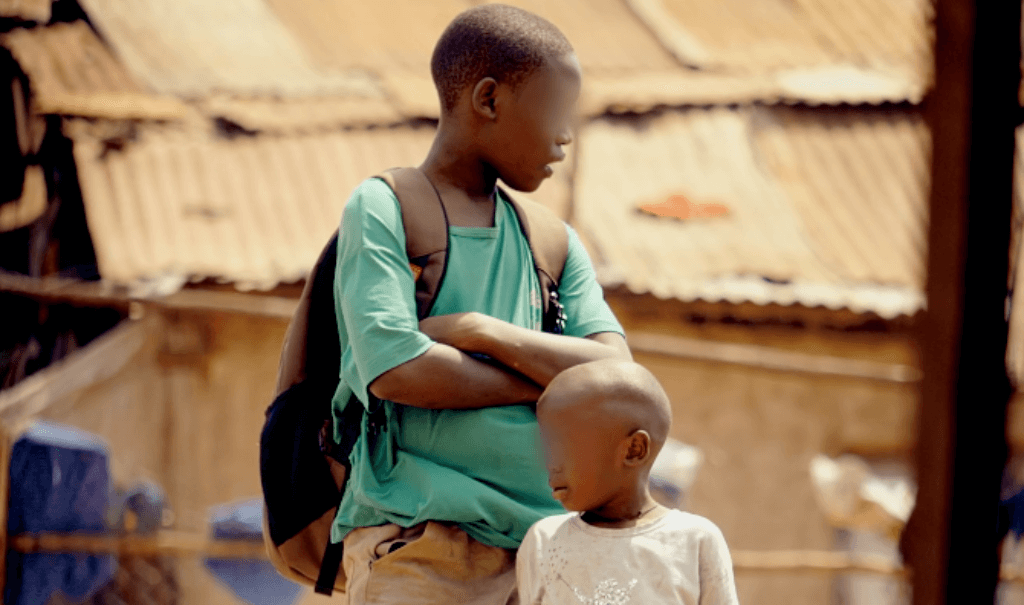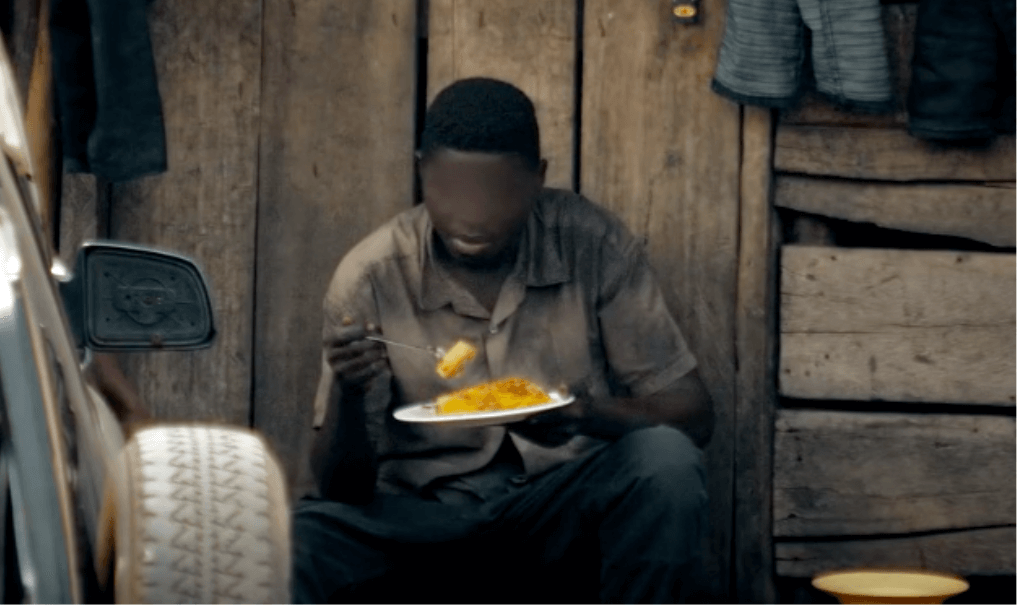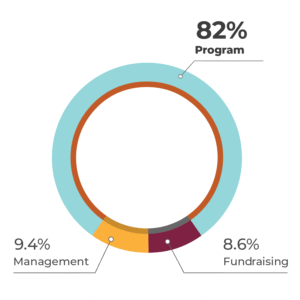This is not a true story, although it is representative of the harsh realities the children we serve in the slums of East and Southern Africa face.
Inira woke early in the morning to severe hunger pains. She rolled off her sleeping mat to see that her scavenged bucket was empty; she’d need to find water soon. Hopefully, she could locate something clean that wouldn’t make her sick again.
Inira wished that her mother was still here. Since she passed away from pneumonia three months ago, life had been so much harder. At this point, Inira wouldn’t even mind seeing her father, even though he abandoned the family five years ago.
At age 16 and without any extended family with the means to help support them, she was responsible for her family’s survival.
She looked to her left, where her three younger siblings still slept. They were getting so thin. Little Neska, only 5 years old, winced in her sleep. Her stomach was probably cramping, too.
Inira cooked their last meal three days ago. Although “meal” might be too generous a term: the four of them had shared a single serving, taking small bites to make it last longer.
Her bowels tightened up painfully again. As the wind whistled through the cracks of their one-room home, she imagined what it would feel like to have a full belly. As hungry as she was, she knew she would also have to come up with $10 for that month’s rent soon. Steeling herself, she picked up the plastic water bucket and stepped out of their one-room home into the red dawn, hoping to find a way to feed her family—at least for today.

Almost 14 million women and more than 3 million children in sub-Saharan Africa walk over half an hour to collect water, often more than once a day. Image is representational
A few people were starting to move around the muddy streets, some with their own water buckets. Her eyes drifted to a neighboring structure where Mudiwa lived. The young woman had offered Inira to join her “business” after her mother died.
She’d said work was always available—work that would help feed her siblings. But she knew what Mudiwa did for a living and wanted no part of it. She’d seen the bruises, the men coming and going late at night.
All the same, she hesitated: would today be the day she was finally pressed into Mudiwa’s line of work to keep her family alive? Shivering, she turned away.
As she walked, she passed a few children in uniforms on their way to one of the community’s small schools. Inira quietly wished she could afford school or even get her siblings into one. She knew that school would open up more opportunities for future work for her, but today, the appeal was more immediate: many schools gave their students a free lunch a couple of days a week, donated by nearby churches.

Two young boys in a slum in Uganda
She finally slipped down a slick hill to the little ditch carrying a rivulet of milky-tan water. The city only pumped water into the slum twice a week, and the line was often hours long. What was before her might not be as clean, but at least it was available. She tried not to think too hard about what was upstream of the tiny creek as she filled the bucket.
It could be worse. Her mother had told Inira stories about other areas where water extortion was rampant. In places like that, bad men often monopolized water the city pumped in before selling it back to the people at high prices. Women and girls who couldn’t afford the water were forced to pay with their bodies.
Most of her siblings were up by the time she returned. Inira urged them to take small gulps of water, rationing the meager supply. Too weak to rise, Neska remained in bed, her glassy eyes pleading with her older sister for help. Inira helped her take a few sips of water, hoping it was clean enough to stay down. She was getting so thin….
She spent the rest of the day visiting other residential areas to see if she could clean their latrines or help out in other ways. They all turned her away; in every case, other children had beaten her to the work.
On the way back, she stopped by Mudiwa’s home. The two spoke outside briefly, and Mudiwa handed Inira a small slip of paper before she left.
She returned exhausted, hungry and discouraged as she tucked her siblings in. When they complained of hunger, she promised to buy them food tomorrow.
Stepping outside for a moment, Inira took a shaky breath. This couldn’t continue. Something had to change—and soon.
She glanced over at Mudiwa’s hut again. She remembered the bruises on Mudiwa’s face and how other women ostracized her.

A man eating a meal in a Ugandan slum
But Inira had also seen Mudiwa come home with a clear, one-liter bottle of water. She’d smelled the food cooking in her shack. She knew that Mudiwa’s little brother went to school every day.
Rubbing her arms, she looked back into her tiny home: Neska’s thin arm lay limp outside the blankets, and her breath came in quick, shallow gasps. Not a good sign.
It was time to make a decision. A decision that had nothing to do with what she wanted. A decision that she knew would likely destroy her—but a decision that just might give her tiny family a chance.
Taking another breath, she looked down at the address Mudiwa had given her. All she had to do was go to the house, do whatever the man said, and he’d give her money. Mudiwa said it might even be enough to feed the children for a day.
Her head bowed and heart heavy, Inira took her first, leaden step toward the address.
We hope this immersive journey draws your heart into the daily realities of the children we serve in the slums of East and Southern Africa. While this is not the experience of all children in that region, the fact that even one child faces these hardships is enough to spur God’s people into action. Every child deserves a life free of exploitation. You can join us in bringing rescue and sustainable solutions for freedom to brave kids around the world.
Donate with confidence
Over the last three years, 82% of every dollar we spent was used for programs that benefit the children we defend.
Destiny Rescue is recognized by Guidestar, Charity Navigator, the Better Business Bureau and Excellence in Giving for our commitment to transparency, accountability and financial integrity.



 Australia
Australia New Zealand
New Zealand United Kingdom
United Kingdom

